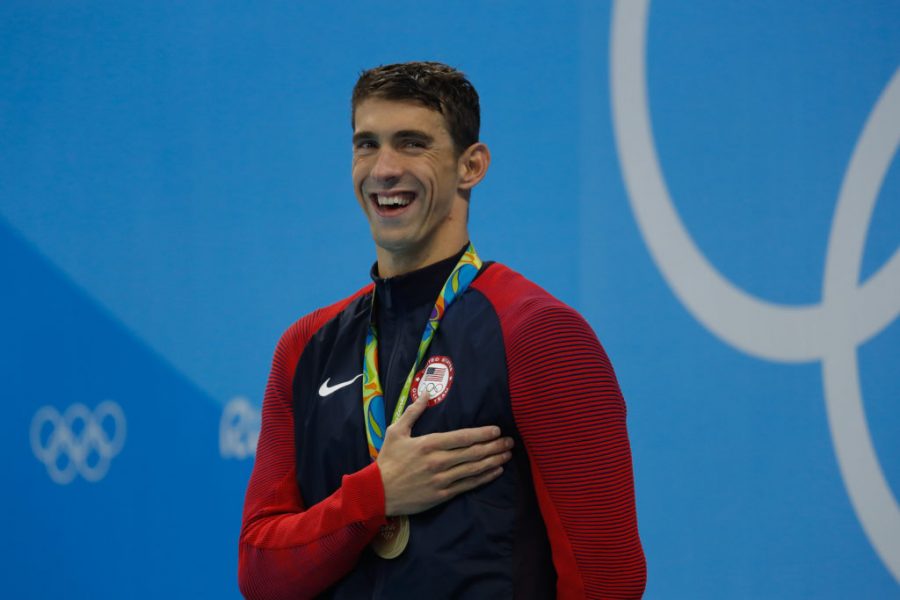Perhaps the single-greatest Olympian to have ever competed, regardless of athletic discipline or era of competition, Michael Phelps is a modern-day legend. Attending the last five Olympic Games, he has swum at the international level for well over twenty years, his towering figure easily inciting fear within his equally seasoned competitors. A national figure at the age of nineteen, Phelps has accrued a vast amount of success, to the point where he has even started his own line of swimming gear. And while his story of immense feats hasn’t always been one of a clean, linear path to success, he has certainly proven that it’s possible to come back from the brink of collapse.
When Michael Phelps attended his first Olympics, hosted in Sydney, Australia, he walked away with a resounding zero medals in his hands. He completely failed to make the podium a single time while he was representing the United States that year. However, when the 2004 Olympics held in Athens rolled around, he started to truly compete with others. In the Beijing Games of 2008, Phelps won eight straight gold medals, going on to win numerous more in London and Rio de Janeiro. While the laundry list of his accomplishments is quite exhaustive, the figures essentially boil down to this: twenty three gold medals, three silver medals, two bronze medals, thirty nine world records and two Olympic records.
Out of the pool, Michael Phelps has secured deals with Under Armour, Omega and Sol Republic Headphones, among others. Beginning last year, Phelps designed and curated his own brand of swimwear called MP. These deals were lucrative for Phelps, who in 2016 has an estimated net worth of over $55 million US dollars. His personal fortune has allowed Phelps to focus on training for elite competition, while also ensuring the welfare of his son, Boomer.
At this point, it’s completely fair to ask: when has Michael Phelps ever failed?
With the preceding list of achievements, it’d be difficult to imagine that Phelps has been lackluster at anything, really. That’s when his tumultuous life in 2004 comes into play, when he was only nineteen years old. Phelps was found driving while under the influence of alcohol in Maryland, which led to an eighteen month probation on his license. That wouldn’t be quite so bad if not for five years later, when he was pasted all over the front of several tabloids: not for his swimming acumen, but instead because of a photo of him smoking marijuana at a University of South Carolina party. It was admittedly not the worst act ever committed, but his sponsors over at Kellogg didn’t particularly appreciate the photo. He was subsequently cut from the supplier of boxed sugars and carbohydrates, and given a three month suspension from swimming. Following this, in 2014, Michael Phelps was yet again found driving under the influence and was barred from the World Championships the subsequent year. Due to his absence, his teammates were unable to qualify for several top-tier swimming finals, a consequence with deep impacts.
In an attempt to remedy years of alcohol and drug abuse, Michael Phelps finally sought help from a professional rehabilitation center. Following forty-five days in the institution, he was released a successful graduate of the program, and began training for the 2016 Olympics in Rio de Janeiro. Would it truly be fair to call the decade of addiction a defining characteristic of Michael Phelps? No, not in the slightest. But they were serious lapses in personal judgement — especially considering his repeated superhuman performances on the Olympic stage. Therein lies the message: there are many great figures in this world, and a great deal who have yet to be discovered. Despite Phelps being the anatomically “perfect” swimmer, his records will eventually all be broken as the sport continues to develop.
There are periods for everyone where intense hardship is experienced. Michael Phelps proves that difficult trials and tribulations aren’t impossible to overcome. Despite his numerous appearances on podiums, millions of dollars garnered from sponsors and a seemingly perfect life, Phelps too has been brought down by his mental insufficiencies before. Instead of dealing with these issues by retiring permanently, a move that would’ve certainly kept him from Rio de Janeiro, he chose to alter the path he was embarking upon. It doesn’t take the mind of an Olympian to accomplish this, either. As you make your way through life, it’s important to recognize that failure doesn’t define you, and that it’s never too late to change. Instead, it’s vital to keep one thought in mind — if Michael Phelps did it, so can you.


